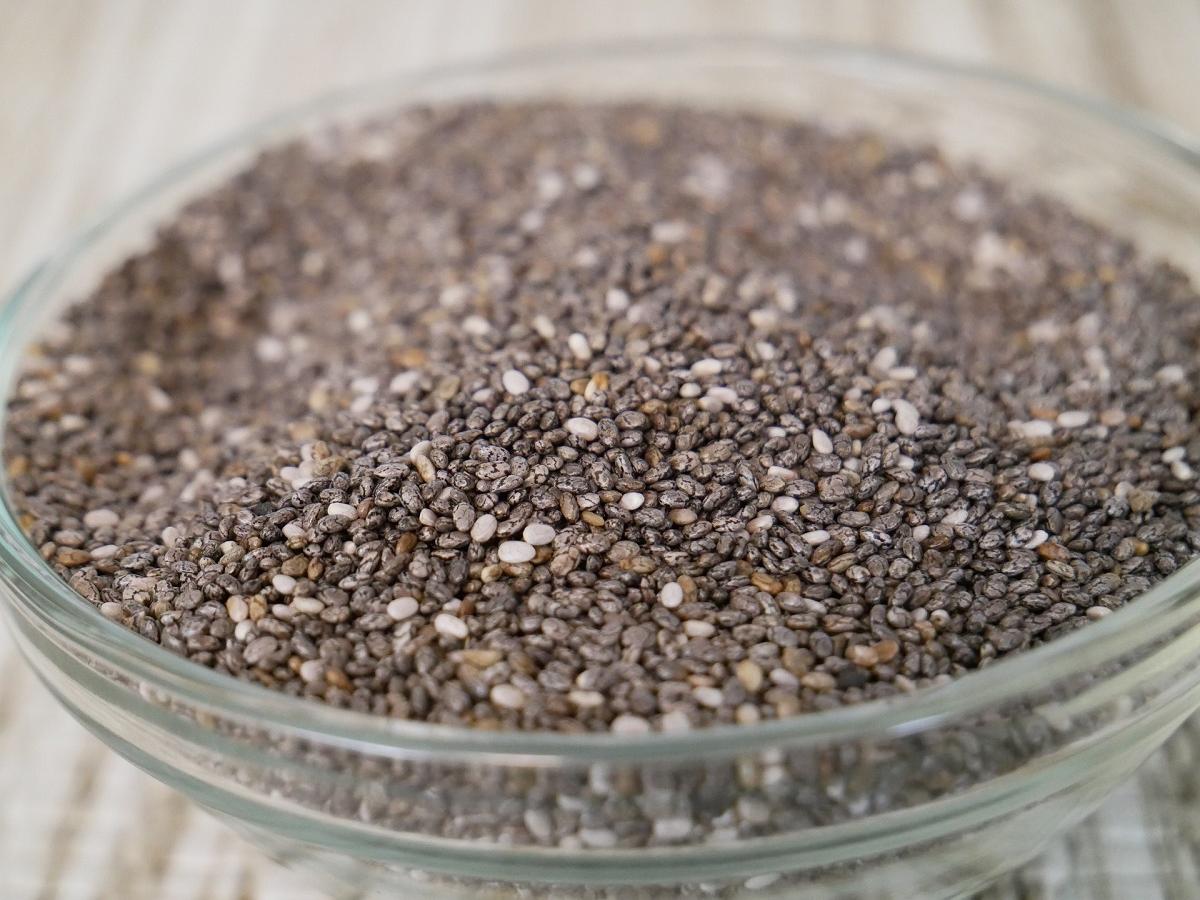Are you missing out on the super benefits of chia seeds?

Chia seeds are a popular superfood but consumers may not be getting the most benefit possible out of them.
University of Adelaide scientists have discovered the way chia seeds are eaten could determine how much or how little dietary fibre benefits people get and grinding them up could be the best way to consume them.
“Chia seeds contain healthy fats, antioxidants and dietary fibre but there isn’t a lot of research into how the composition of these seeds interact with gut microflora, which help to digest food,” said senior author Professor Rachel Burton from the University of Adelaide’s School of Agriculture, Food and Wine.
“Through this research, we discovered that different preparation methods influenced the nutritional benefits gained from the seeds and grinding them up delivered more nutrients than consuming them whole.”
Chia seeds are often referred to as a superfood due to their high levels of omega-3 fatty acids and dietary fibre. They can be eaten raw or when mixed with liquid, form a gelatinous solution which acts as a thickener.
While the popularity of chia seeds has recently grown, the tiny seeds have been around for thousands of years and are believed to have originated in Central America, where they were eaten by the Aztecs.
“This shows the benefits of eating chia seeds could be enhanced if the nutlets are ground, improving access to key nutrients such as dietary fibre.”Dr James Cowley, School of Agriculture, Food and Wine, University of Adelaide.
To carry out this research, gut microbes from pigs were exposed to different forms of chia seeds, including whole seeds and seeds that had been ground into a meal.
The samples were incubated for 70 hours while a special robotic machine measured the gas released over this time, simulating the digestion process.
“What we found was that when the seeds were ground down, they produced more beneficial metabolites or fuel that could then be used to renew gut cells,” said the University of Adelaide’s Dr James Cowley from the School of Agriculture, Food and Wine, who also worked on the study.
“This shows the benefits of eating chia seeds could be enhanced if the nutlets are ground, improving access to key nutrients such as dietary fibre.”
The findings, including a detailed chemical analysis of the composition of chia seeds, have been published in the journal Food & Function.
“There is a lot of emerging research that show gut microbes in the digestive system influence a huge range of conditions including depression and anxiety. Consuming ground chia seeds may potentially shift populations of gut microbes and affect progression of these conditions, however more research needs to be conducted in this area,” said Dr Cowley.
Many pre-clinical and clinical studies showing the health benefits of chia seeds have been conducted on whole chia seeds. Based on the findings of this research, there could be some benefits to revisiting these studies using ground chia seeds.
There is also potential to build on this research by conducting clinical trials into the best way to consume this ancient food.
Media contacts
Professor Rachel Burton, Senior Author, School of Agriculture, Food and Wine, The University of Adelaide.
Mobile: +61 (0)419 769 713. Email: rachel.burton@adelaide.edu.au
Dr James Cowley, Researcher, School of Agriculture, Food and Wine, The University of Adelaide.
Mobile: +61 (0)439 913 919. Email: james.cowley@adelaide.edu.au
Jessica Stanley, Media Officer, The University of Adelaide. Mobile:+61 (0)422 406 351.
Email: jessica.stanley@adelaide.edu.au
